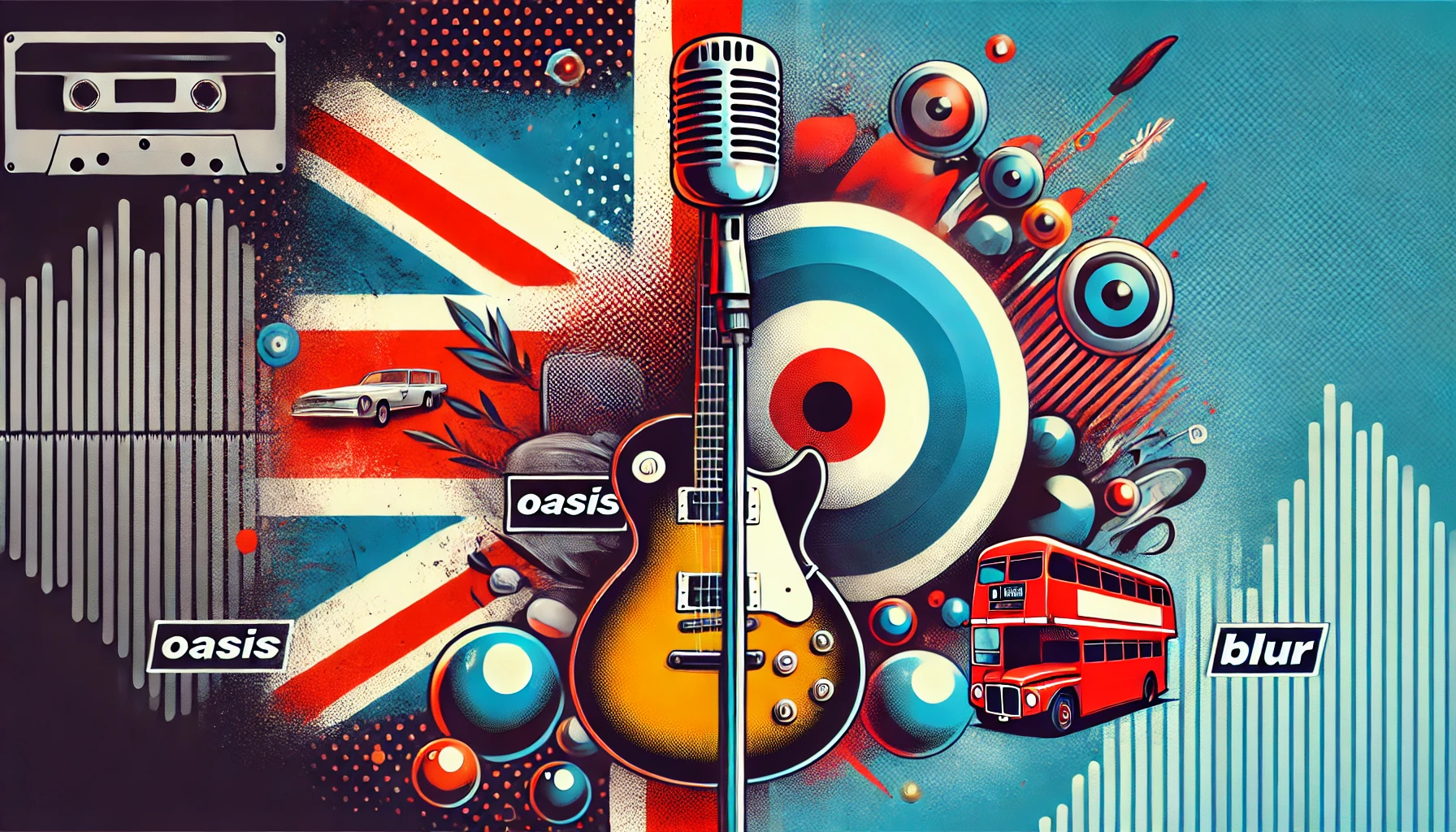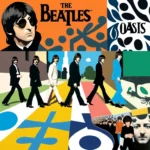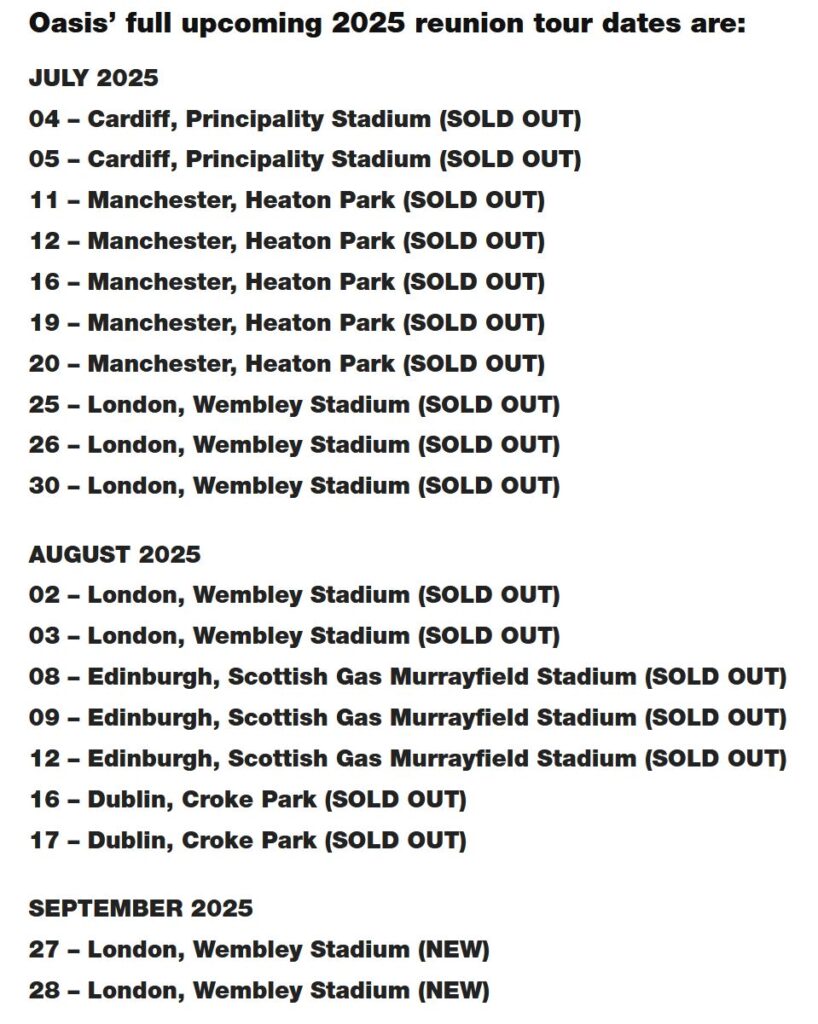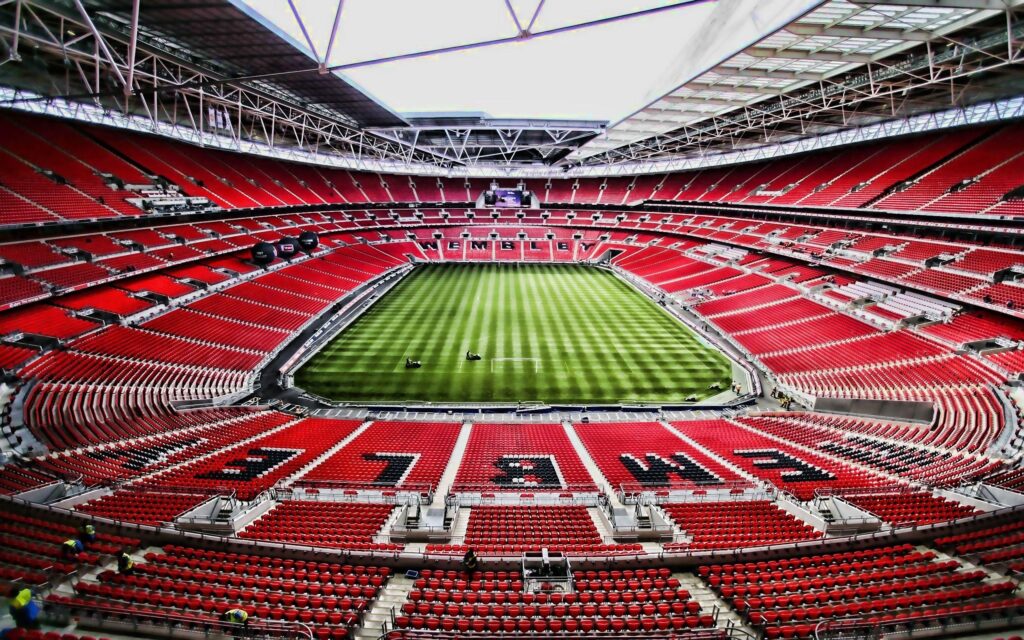The rivalry between Oasis vs Blur, a hallmark of Britpop, still echoes today, though it’s not as heated as it once was. This iconic clash represented more than just music; it embodied deeper social divides in Britain. Over the years, key players like Noel Gallagher and Damon Albarn have shifted from bitter rivals to figures of mutual respect, occasionally referencing their shared history with a hint of nostalgia. Despite the changes, their legacies continue to influence new artists and fans alike. If you want to uncover more about how this historical tension shapes today’s music, just keep going.
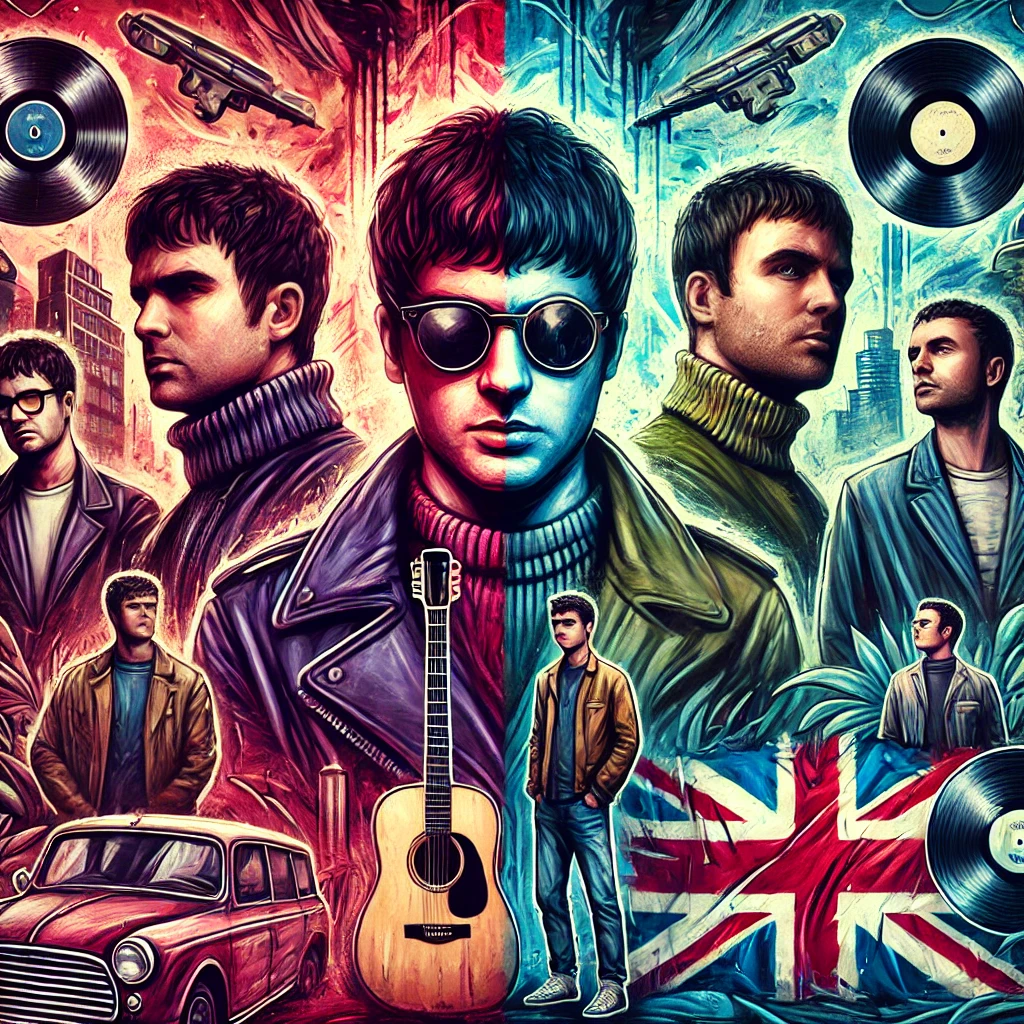
Historical Context of the Rivalry
The rivalry between Oasis vs Blur serves as a vivid illustration of cultural dichotomy in the Britpop period. Emerging in the mid-1990s, this competition highlighted a clash between working-class ethos, embodied by Oasis, and the more refined, art school elitism represented by Blur.
You can see how the media fueled this rivalry, painting it as a North versus South England conflict. Oasis, led by the outspoken Gallagher brothers, tapped into a raw, authentic sound that resonated with the masses, while Blur’s cerebral approach attracted a different kind of audience.
The rivalry peaked in August 1995 during a chart battle between their singles “Country House” and “Roll With It.” This moment became emblematic of the Britpop movement, with Blur ultimately outselling Oasis by 58,000 copies.
However, despite this temporary victory, Oasis maintained broader success with their albums and later singles, solidifying their place in British music history. Notably, Oasis’s debut album, Definitely Maybe, became the fastest-selling debut album in British history and contributed to their enduring legacy.
Over time, both bands have reflected on their shared experiences, acknowledging the significant impact their rivalry had on shaping the cultural terrain, even as they moved past their competitive tensions.
Key Players: Oasis and Blur
Who could forget the key players that fueled the iconic rivalry between Oasis and Blur? At the center of it all were Noel and Liam Gallagher from Oasis, whose working-class roots connected with many fans.
On the other side, you’d Damon Albarn and his band Blur, often seen as the art school elitists. This contrast shaped the rivalry and added layers of complexity to their identities.
The competition reached a peak during the infamous “Big Chart Showdown” in August 1995. Blur’s single “Country House” outsold Oasis’s “Roll With It,” a moment that defined their fierce rivalry.
While Blur celebrated this short-term victory, Alex James famously remarked, “Blur won the battle, Oasis won the war,” acknowledging Oasis’s lasting impact in both the UK and America.
Over the years, the relationship between these key players has softened considerably. The animosity that once defined them has given way to mutual respect.
Their shared experiences have created a bond that hints at friendship. With Noel Gallagher even joining Damon Albarn on stage during a charity event in 2013, the rivalry might be changing into something more amicable.
Evolution of Their Relationship
As time has passed, the rivalry that once fueled Oasis vs Blur has changed into a more amicable relationship. The intense competition that peaked during the 1995 chart battle has shifted from hostile exchanges to a tone of reconciliation.
You might recall how, in 2013, Noel Gallagher and Damon Albarn performed together at a charity event, signaling a thaw in their previously contentious interaction.
Both bands now openly express respect for each other’s contributions to music, showcasing a significant shift towards mutual admiration. In a 2018 interview, Albarn reflected on his relationship with Gallagher, describing it as a complex bond shaped by their shared experiences in the music industry.
What’s striking is how the rivalry, once characterized by public animosity, has evolved into a narrative of nostalgia and respect.
You can sense a light-heartedness when both bands occasionally reference their past competition, often with humor and fondness. This change illustrates that while the competitive spirit may have faded, the relationship between Oasis and Blur has blossomed into something more meaningful, rooted in respect and shared history.
Musical Influence and Legacy
During the 1990s, Oasis and Blur not only defined the Britpop timeframe but also set the tone for British music’s cultural environment. Their rivalry played a crucial part in shaping the sound of the period, influencing everything from fashion to attitudes in music.
Oasis, with their working-class anthems like “Wonderwall” and “(What’s the Story) Morning Glory?”, created a legacy that connects with fans worldwide. Their ability to craft relatable lyrics and massive hits solidified their status as icons of Britpop.
On the flip side, Blur brought an art-school sensibility to the genre with tracks like “Song 2″ and “Girls & Boys.” Their diverse musical evolution reflected the shifting trends within the UK music scene, showcasing their versatility and artistic growth.
The intense media coverage surrounding their feud painted them as opposing forces, but this competition ultimately enhanced their legacies.
Both Oasis vs Blur continue to influence a new generation of artists, serving as touchstones in conversations about British rock. Their contributions have left a lasting impression, ensuring their music remains relevant as it inspires today’s musicians and shapes future sounds. Additionally, their rivalry has become a key example of the impact of media coverage in shaping public perception of artists and genres.
Notable Controversies and Feuds
The rivalry between Oasis and Blur was marked by a series of notable controversies and feuds that fascinated fans and the media alike.
The most infamous moment came during the 1995 Britpop battle, when both bands released singles on the same day. Blur’s “Country House” and Oasis’s “Roll With It” ignited a fierce competition that captured public attention. After Blur’s victory, Noel Gallagher didn’t hold back, making derogatory comments about Damon Albarn and Graham Coxon, which only intensified the animosity between the two groups.
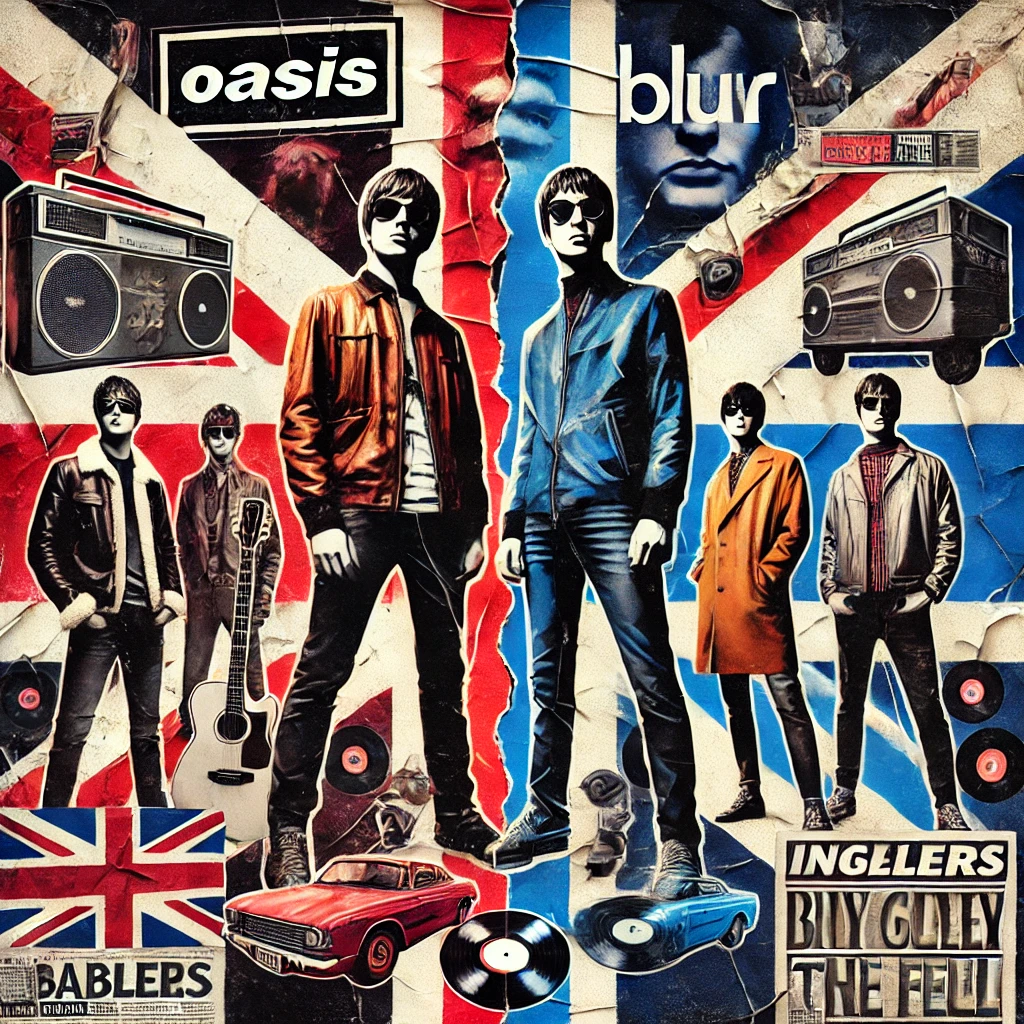
Tensions escalated further during charity events and interviews, where both bands exchanged jabs, highlighting their contrasting images. Oasis often embodied working-class roots, while Blur leaned into an art school background, making their rivalry more than just musical.
Despite some reconciliations, like Noel Gallagher joining Blur on stage in 2013, the feud remained a focal point in media narratives about Britpop.
Even today, the controversies surrounding their rivalry continue to echo, fueling discussions about potential reunions and collaborations. The legacy of their feuds remains influential, showcasing how these past disputes shaped the cultural milieu of their time.
Current Perspectives From Band Members
Both bands have shown a significant shift in their outlooks over the years, moving away from the bitter rivalries that once dominated headlines.
Noel and Liam Gallagher, once embroiled in heated disputes, have matured and expressed a willingness to reconcile. Noel still maintains a critical view of Blur’s music, but it’s clear he acknowledges their shared history.
Damon Albarn, in a 2018 interview, revealed his respect for Noel Gallagher, highlighting a softened stance in the Blur vs. Oasis rivalry. This change in attitude is evident in their participation in charity events together, like when Noel joined Albarn and Coxon on stage in 2013.
Alex James from Blur reflects on their rivalry, noting how winning the chart battle with “Country House” felt hollow, emphasizing the emotional toll that competition took on the band.
Current viewpoints indicate both bands have moved on, focusing more on their individual artistic pursuits while recognizing the intricacies of their past. The fellowship they share now stands in stark contrast to the fierce competitiveness of the ’90s, showcasing how time can reshape relationships in the music world.
Lasting Impact on Britpop Culture
Few rivalries have left such a significant mark on music and culture as the one between Oasis vs Blur, epitomizing the spirit of Britpop in the 1990s. This intense rivalry didn’t just divide fans into “team Oasis” and “team Blur”; it also highlighted deeper societal themes, like class distinctions and regional divides in the UK.
The media played an essential role in amplifying this competition, framing Oasis as the working-class heroes and Blur as the elitist alternative.
Their chart battles, particularly the iconic clash of “Country House” and “Roll With It,” weren’t just musical contests; they became cultural events that defined youth identity and influenced fashion trends. The cultural significance of this rivalry extended far beyond the music itself, creating a sense of belonging among fans that struck a chord deeply within Britpop culture.
Even today, as both bands reflect on their past, the legacy of their rivalry continues to spark nostalgia and discussion. The impact on British music history remains undeniable, reminding you of a time when music wasn’t just about the sound, but also about the stories, identities, and divisions it represents.
